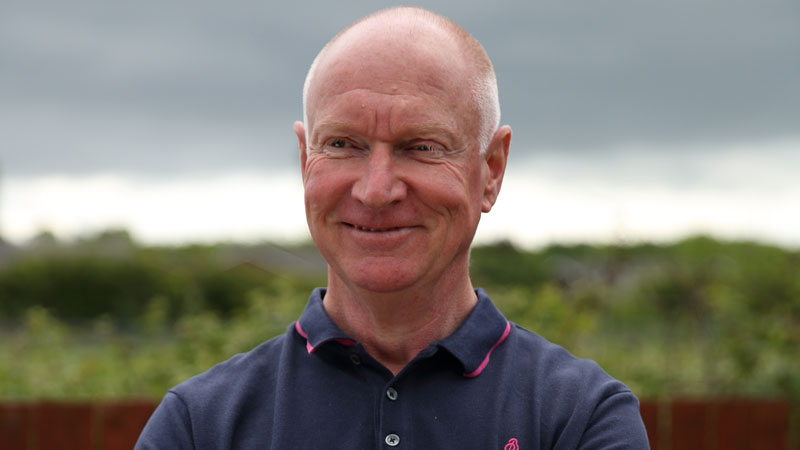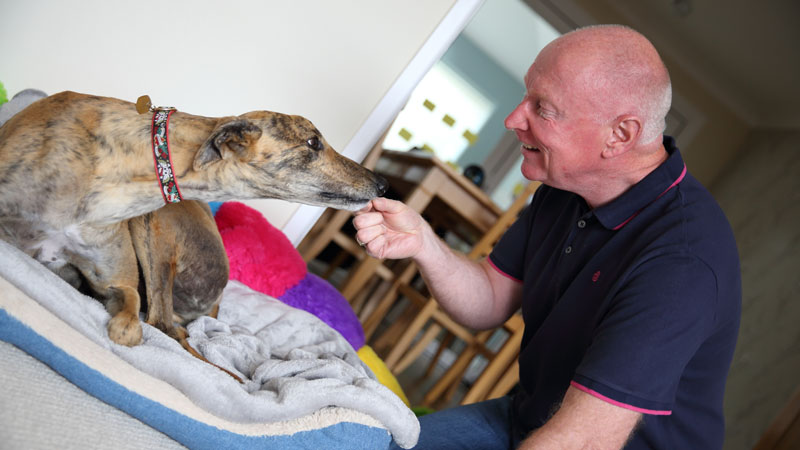A stroke can happen to anyone. But many of the things we do in everyday life such as smoking, drinking alcohol or being physically inactive, along with health problems including high blood pressure, diabetes, or being overweight, can increase your stroke risk.
However, making small changes to your lifestyle can help you reduce your risk of stroke or further strokes.
Since his stroke in 2017, Dave Wilson, 55 from Gateshead, has been doing just that. 'Stroke was a huge shock,' says Dave. 'I was lucky in that I could walk, talk and use my arms, although not to the same extent as I could before my stroke. But emotionally I'm very different now. I'm more likely to get upset, or breakdown. I would have never done that before my stroke.

'I wanted to do what I could to avoid having another stroke. So along with my wife, I began to change my lifestyle:
Eating healthily
'I started with my diet. I didn't count calories, I just cut out chocolates, sweets or anything fattening and ended up losing four and a half stone. I actually eat more now but the quality is better as it's made from scratch.'
Reducing salt
'We don't put salt into our food or add it onto the prepared dish. We cook most of our meals from scratch and put loads of garlic in most things instead. Salt is in many pre-prepared foods, so we always check the traffic lights on the packaging when we go shopping.'
Drinking less alcohol
'Having had a brain injury, I wasn't keen on the thought of slowing down my brain cells with alcohol. The no and low-alcohol beers are great, but I drink lime and soda, or orange or blackcurrant with diet lemonade instead.
'It hasn't always been easy. Only having soft drinks at the pub and no crisps or nuts raised a few eyebrows among my friends, but explaining what I was doing and why made it easier. Three years on, I still don't drink much alcohol. If I do, I stick rigidly to the guidelines - no more than 14 units in a week, and not too many in one go.'
Getting moving
'Initially, it took me 20 minutes to walk a hundred yards, so I started doing gentle exercise at home to improve my fitness, coordination and confidence. For example, press ups against a wall, sitting and standing repeatedly from a chair, and knee lifts.
'I'm now able to do more exercise. Rory, our dog, keeps me walking each day, which has improved my mental health.'

Making small changes that last
'Three years on, I still follow these principles. Everyone is different and has their own challenges, but the only person who is going to make you feel better, improve your strength, and health is you.
'My advice would be to start small. This could be just cutting from two sugars in tea to one, reducing the salt on your dinner or drinking more water. Continue until these changes are normal, and then start another small change. It will be surprising the differences and improvements you can make.'
Find out more
In January, we held our first Stroke Prevention Day, sponsored by LoSalt* and OMRON, who work with us to raise awareness of the importance of stroke prevention.
What small change could you make to your lifestyle to help you reduce your risk of stroke? Explore our guidance for more advice about stroke prevention.
*If you take medication that affects potassium levels, speak to your GP first to check if reduced sodium salt alternatives are suitable for you.
Stroke News magazine
This article is featured in the spring 2021 edition of our magazine, Stroke News. Subscribe to our future editions available in print, on audio CD, or via email.
